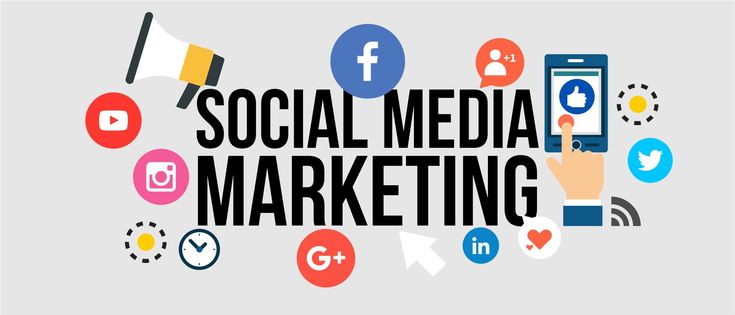Table of Contents
Digital Marketing 2025: Future-Shaping Trends
As we move deeper into the digital age, marketing is transforming faster than ever. Technologies are evolving, consumer behaviors are shifting, and businesses are adapting to keep up. In 2025, digital marketing isn’t just about being online—it’s about being smarter, faster, and more human.
Whether you’re a startup founder, a small business owner, a freelancer, or just curious about the field, this guide will walk you through the top digital marketing trends shaping 2025—and why they matter for your brand’s future.
Why Digital Marketing Continues to Dominate
Before diving into trends, let’s understand why digital marketing is more essential than ever:
- Global internet users now exceed 5.3 billion.
- Social media has become the new storefront.
- Smartphones are the primary device for online browsing.
- Consumers expect personalization, speed, and relevance.
Traditional marketing isn’t dead—it’s just digital-first now. In 2025, if you’re not engaging people online, you’re invisible.
Key Digital Marketing Trends for 2025.
Here are the biggest trends redefining digital marketing this year and beyond:
1. AI-Powered Everything
AI is no longer a future concept—it’s already powering much of the digital world.
What’s happening:
- AI tools are generating blogs, images, videos, and even ads.
- Chatbots and virtual assistants provide 24/7 customer service.
- AI helps brands predict customer behavior by analyzing data with machine learning.
Why it matters:
AI empowers marketers with faster scaling, personalized outreach, and smarter decision-making. It’s saving time, reducing costs, and increasing effectiveness.
✅ Tools to explore: ChatGPT, Jasper, SurferSEO, GrammarlyGO, and Meta AI Ads.
2. Zero-Click & AI Search (Google SGE)
In 2025, Google’s Search Generative Experience (SGE) is changing the SEO game. AI-generated answers now appear directly on the results page, reducing traditional clicks.
What’s happening:
- Users get summarized answers without visiting websites.
- “Zero-click searches” are becoming more common.
- Voice search and mobile search are rising.
Why it matters:
Your website and content need to be better structured, faster, and more helpful to stay relevant in AI-enhanced results.
✅ Tip: Focus on E-E-A-T (Experience, Expertise, Authoritativeness, Trustworthiness) and create FAQ-style content.
3. Hyper-Personalization
Generic marketing is out. In 2025, consumers want messages that feel custom-made.
What’s happening:
- Emails, ads, and product recommendations are tailored based on behavior.
- Marketers leverage data for timely and relevant messaging.
Why it matters:
Personalized content gets better engagement, more clicks, and higher conversions.
✅ Tools to explore: Klaviyo, HubSpot, Salesforce Marketing Cloud, Segment.
4. Short-Form Video Rules
Video remains king—but not all video. Expect short-form video (under 60 seconds) to be the leading format by 2025.
What’s happening:
- TikTok, Instagram Reels, and YouTube Shorts continue to explode.
- Algorithms favor quick, entertaining, and informative content.
- Video shopping and “shoppable reels” are growing fast.
Why it matters:
Brands that don’t use video are falling behind. It’s not just about going viral—it’s about being seen.
✅ Tip: Use short videos for product highlights, customer testimonials, behind-the-scenes content, and quick tutorials.
5. Influencer Marketing 2.0
Influencer marketing is evolving. In 2025, it’s not just about celebrities—it’s about community trust and authenticity.
What’s happening:
- Micro and nano influencers (under 50k followers) are getting higher engagement.
- Brands focus on long-term partnerships, not one-off posts.
- AI-generated influencers are even entering the space.
Why it matters:
Real voices matter more than polished ads. Influencers bring authenticity and relatability.
✅ Tip: Focus on creators who align with your brand’s values—not just follower count.
6. First-Party Data Strategy
With growing privacy laws and the death of third-party cookies, marketers must rely on first-party data—data collected directly from customers.
What’s happening:
- More focus on email sign-ups, surveys, and loyalty programs.
- Tools are being developed for responsible consent and user data management.
- Customer trust is a major differentiator.
Why it matters:
Brands that collect and use first-party data effectively will outperform competitors in targeting and retention.
✅ Tip: Create value-driven ways for users to share their info (discounts, quizzes, gated content).
7. Voice & Visual Search Growth
Consumers aren’t just typing—they’re talking and snapping.
What’s happening:
- Voice search queries are more natural and conversational.
- Visual search (using images instead of text) is on the rise via Google Lens and Pinterest Lens.
Why it matters:
Marketers must optimize for how people search—not just what they type.
✅ Tip: Use conversational content and descriptive alt text for images.
8. Sustainable & Ethical Marketing
Customers prefer to support brands that share their values. In 2025, authenticity, sustainability, and ethics are essential.
What’s happening:
- Brands showcase their environmental and social impact.
- Consumers avoid businesses with questionable practices.
- Transparency is a marketing strategy, not just a responsibility.
Why it matters:
Your brand story is part of your product. Honesty builds long-term trust.
✅ Tip: Highlight real initiatives—not performative statements.
9. Content Strategy = Authority Building
SEO and content marketing are merging into authority building. It’s no longer about ranking for keywords—it’s about becoming a recognized expert in your space.
What’s happening:
- Content hubs, pillar pages, and topical authority matter more.
- Google wants original, experience-based content.
- AI-generated fluff content is being penalized.
Why it matters:
Depth matters more than volume. Be the go-to source, not just another result.
✅ Tip: Use blogs, whitepapers, podcasts, and case studies to share real insights.
10. Marketing Automation + Human Touch
Automation isn’t about removing people—it’s about giving them more time to do meaningful work.
What’s happening:
• Automated scheduling for email, ads, and social media.
• AI tools help segment audiences and suggest content.
• Smart CRMs track behavior and trigger timely actions.
Why it matters:
You save time, reduce errors, and connect more personally, even at scale.
✅ Tools to explore: ActiveCampaign, Mailchimp, Zapier, Notion AI, Make.com.
Key Stats for 2025
- 72% of consumers say they’re more likely to buy from a brand that personalizes communications.
- Over 85% of all internet traffic consists of video content.
- 80% of brands say they’ll increase investment in AI tools this year.
- Nearly two-thirds of consumers have made direct purchases via social media.
What Should You Do Next?
If you’re just getting started in digital marketing or looking to refresh your strategy:
1. Audit your current presence – Where are you online? How are you performing?
2. Experiment with new formats – Try short videos, blog posts, email campaigns, or AI tools.
3. Focus on audience needs – Not just what you want to say, but what your audience wants to hear.
4. Stay informed – Trends evolve fast. Subscribe to newsletters, follow marketing blogs, and keep testing.
Final Thoughts
The future of digital marketing is fast, personalized, AI-powered, and human-centered. Brands that embrace these shifts—while staying authentic and adaptive—will stand out in 2025 and beyond.
You don’t need to do everything at once. Start small. Test. Learn. Improve. The goal is not to keep up with every trend—it’s to know which ones matter most to your audience.

